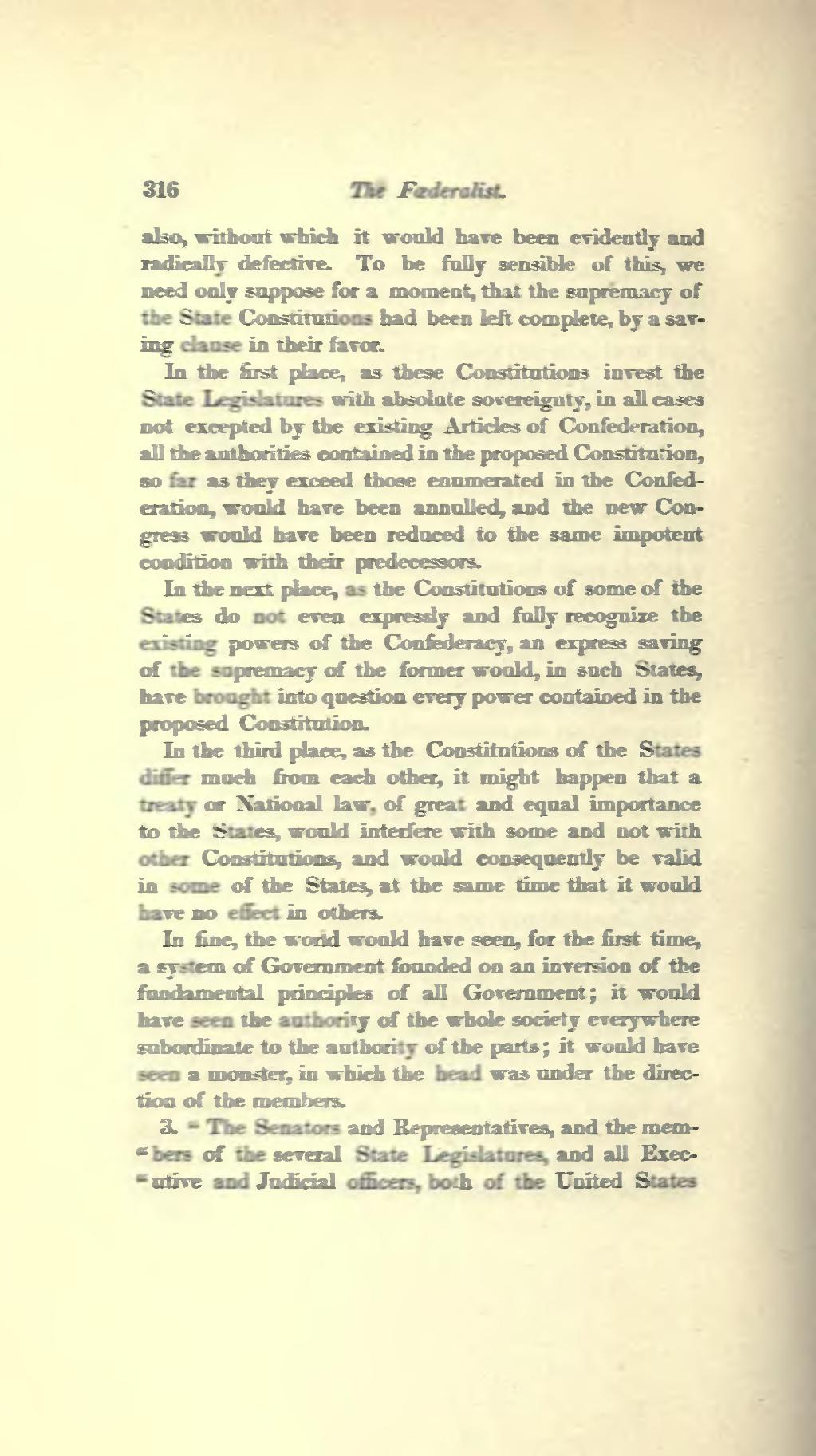also, without which it would have been evidently and radically defective. To be fully sensible of this, we need only suppose for a moment, that the supremacy of the State Constitutions had been left complete, by a saving clause in their favor.
In the first place, as these Constitutions invest the State Legislatures with absolute sovereignty, in all cases not excepted by the existing Articles of Confederation, all the authorities contained in the proposed Constitution, so far as they exceed those enumerated in the Confederation, would have been annulled, and the new Congress would have been reduced to the same impotent condition with their predecessors.
In the next place, as the Constitutions of some of the States do not even expressly and fully recognize the existing powers of the Confederacy, an express saving of the supremacy of the former would, in such States, have brought into question every power contained in the proposed Constitution.
In the third place, as the Constitutions of the States differ much from each other, it might happen that a treaty or National law, of great and equal importance to the States, would interfere with some and not with other Constitutions, and would consequently be valid in some of the States, at the same time that it would have no effect in others.
In fine, the world would have seen, for the first time, a system of Government founded on an inversion of the fundamental principles of all Government; it would have seen the authority of the whole society everywhere subordinate to the authority of the parts; it would have seen a monster, in which the head was under the direction of the members.
3. "The Senators and Representatives, and the members of the several State Legislatures, and all Executive and Judicial officers, both of the United States
